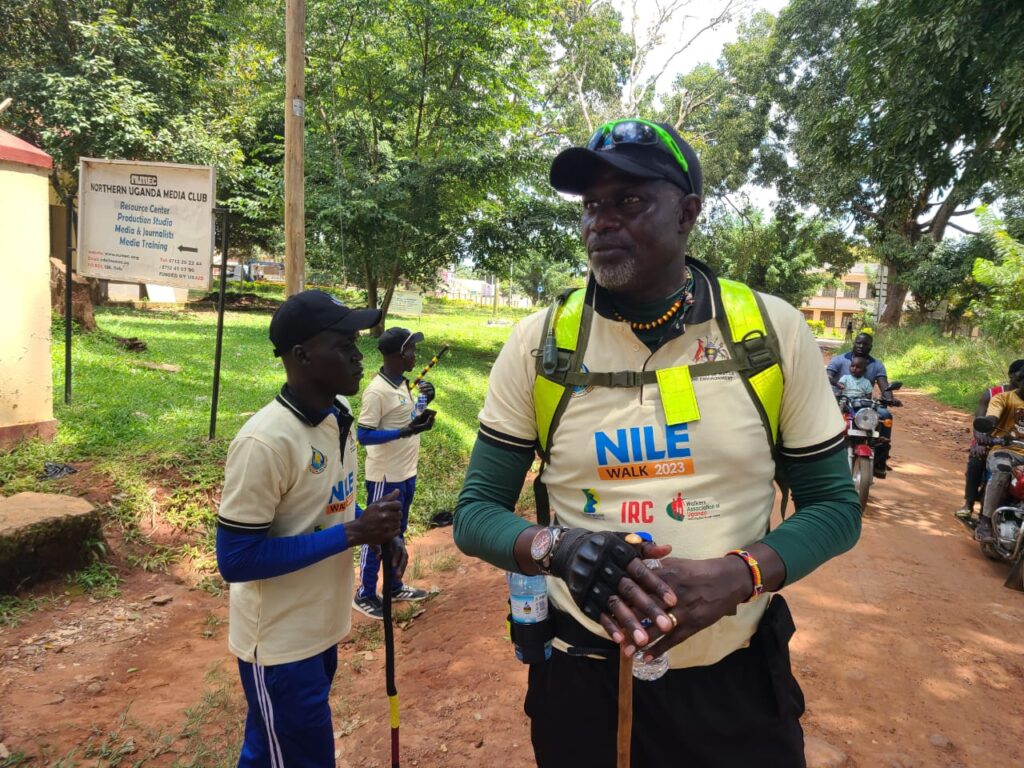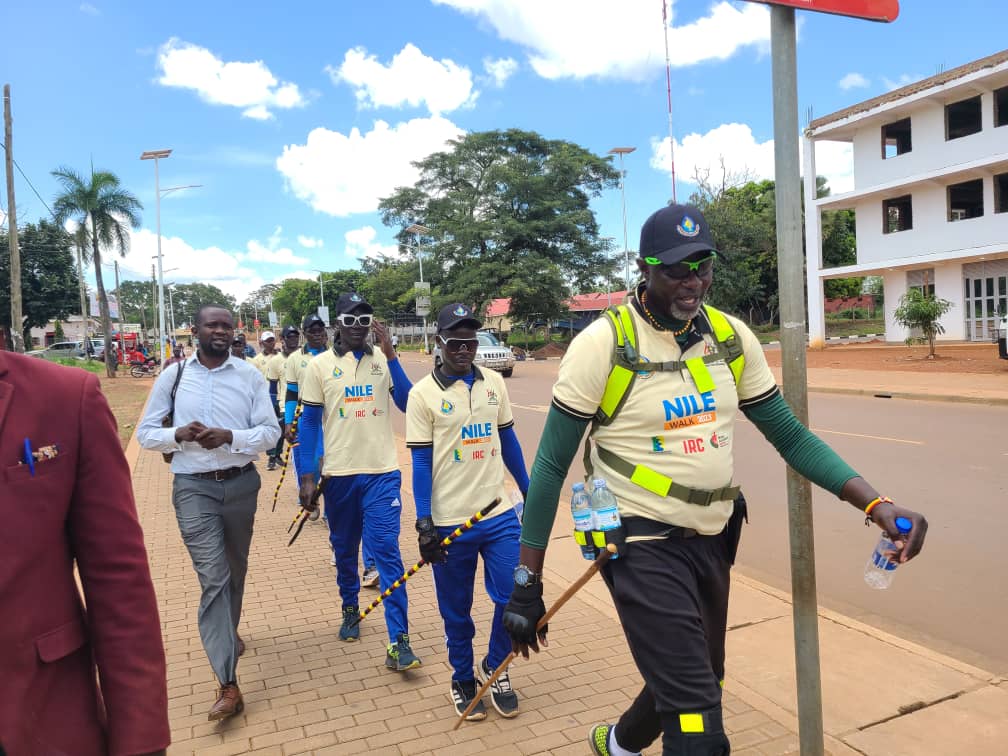Gulu City, (UG): A total of seven (7) environmental activists under their umbrella; the Walkers Association of Uganda (WAU) took part in the 700 km walk in the campaign aimed at saving the world’s longest river, the River Nile.
The walkers started their journey on Thursday from Elegu, the Uganda-South Sudan border town led by Mr Joseph Odong, a Senior Water Officer at the Ministry of Water and Environment who said they are walking to gather information on issues affecting the Nile.
“We are collecting views and issues along the Nile route, so we present them during the main conference for dialogue. We are also using this opportunity to source financing so that some of the issues we will present can be financed as a project to ensure the Nile is protected from any kind of pollution, encroachment, and other factors affecting it,” said Mr Odong.
The major aim of the walk is to collect data to be presented in the forthcoming main conference called the Nile Basin Development Forum 2023, which will start on the 16th to 18th of October at the Munyonyo Hotel in Kampala.
The conference brings together 11 member states in the Nile basin, including Burundi, DR Congo, Egypt, Uganda, Kenya, Rwanda, South Sudan, Tanzania, Eritrea, and Ethiopia, to meet every three years to dialogue on issues including how to sustainably manage the Nile and develop the Nile water resources. This will be the first time Uganda has hosted it.
Dansan Oco, one of the walkers, told the DailyExpress that the walk is part of an effort to call on everyone in the Nile Basin to begin taking the responsibility to conserve the river.
“We are looking for strategies to keep the Nile safe, while communities around the Nile keep on surviving on it as well, and we are calling on the community to get involved in government interventions to protect the Nile so that it keeps on feeding us,” said Oco.
The activist says the Nile is a national treasure to Uganda as it provides surrounding districts with fertile soil, abundant rainfall, and aquatic life, and is home to wildlife, which plays a big role in the economy of the country.
Among the partners supporting the Walkers Association of Uganda in the activity are the Ministry of Water and Environment, the Uganda Broadcasting Corporation (UBC), Care Uganda, and the Northern Uganda Media Club, among others.

By around midday on Sunday, the team made it to Gulu City, which is approximately 120 km from Elegu. Mr Geoffrey Ayeni, an environmental activist, said all their members are still in good shape and strong enough to finish the remaining 580 km.
He observes that along the route they have covered, they discovered that the presidential ban on charcoal production is not being obeyed and enforced, as they were able to record several trailers loading and transporting charcoal late at night in Amuru district.
Mr Ayeni argued that with almost 90% of industries in the Nile basin countries running on hydro-generated power from the Nile, there is a great demand to conserve the Nile to be able to constantly supply electricity to meet the needs of the increasing population. He further appealed to the international community to finance Uganda to be able to rebuild the losses and damages caused to the Nile.
“We want to raise funds from member countries to focus more on Ugandans because Uganda is the source of the Nile, and it’s time we raise resources to rebuild losses and damages that have been caused along the Nile,” Mr Ayeni said.
Mr Joseph Odong on behalf of the Ministry of Water and Environment said that he is concerned by the many industries that are directly discharging wastewater into the Nile, affecting water, biodiversity, and aquatic life.
According to Mr Odong, the Ministry of Water and Environment is currently developing a tool called the Catchment Management Plan, which will bring on board farmers engaging in agriculture near the Nile and the communities encroaching to become partners to address activities threatening the Nile through strategic interventions.
Another threat to the Nile is the farming activities within the buffer zone. He says farmers are increasingly clearing vegetation, thus opening up ground for erosion and subsequent siltation, leading to the degradation of the Nile. The worst farming is commercial farming along the Nile, which is also polluting the Nile with chemicals and encroachment by people who settle close to it, thus causing pollution.
The Nile is the world’s longest river, covering up to about 3 million sq km, or approximately 10% of Africa’s land mass. These walkers will traverse 13 districts in Uganda lying along the river. It is estimated that over 250 million people in Africa depend on the Nile, according to the Nile Basin Water Resources Atlas.
If you would like your article/opinion to be published on Uganda’s most authoritative news platform, send your submission on: [email protected]. You can also follow DailyExpress on WhatsApp and on Twitter (X) for realtime updates.



